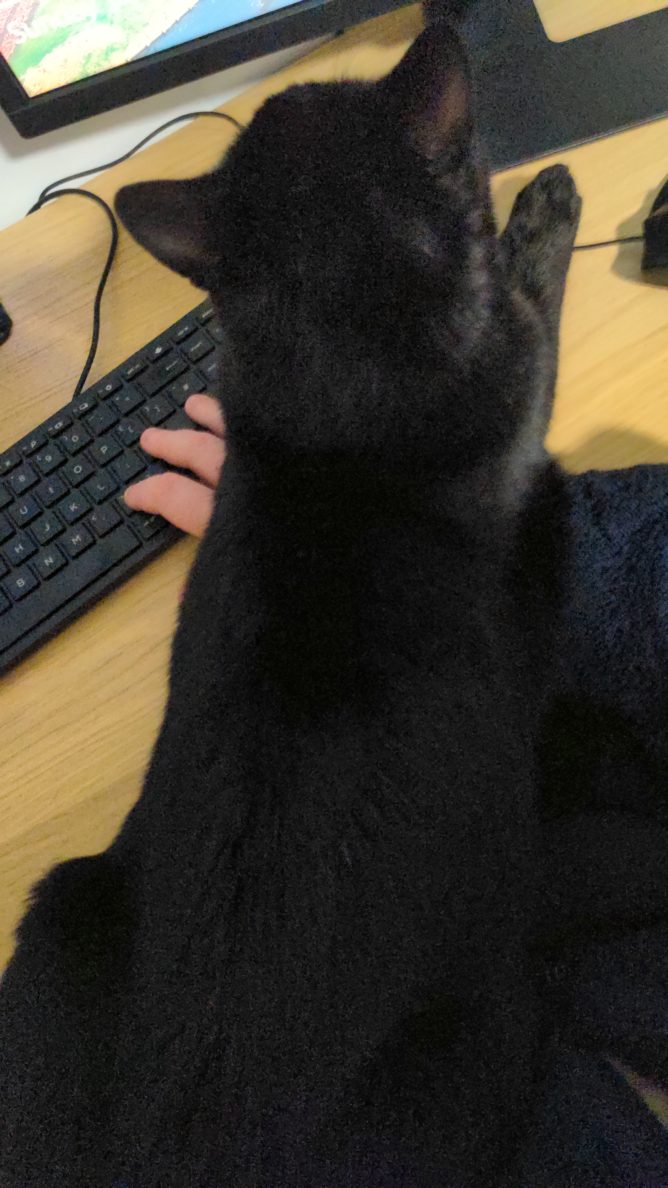Read to the end for fascinating insights on:
- Brologue, six months in;
- What it means to write as if already free.
Don’t let my cybersecurity degree fool you – I am, verbatim, the humanities kid who fell for the ‘humanities are useless, get into STEM’ meme. I’ve more confidence in my ability to write – something I’ve done my whole life, yet am unqualified – than I do working in a field I’m qualified for. Give me a pen, or a keyboard, and I don’t have to think (well, maybe I think a little) – the words just come to me.
Writing’s not just something that I enjoy – be it a story, a journal entry, a blog post – writing, for me, is a survival skill:
https://brologue.net/2023/12/26/my-spines-as-stiff-as-a-prosthetic-leg
In person, for better or worse, I don’t always ‘get it right.’ I trip over what I want to say, never feel like I’ve said enough, or say the wrong thing when I mean something else. I don’t write in order to eat, because I’m not a journalist. But, in some sense, I do write in order to live. Writing is the means by which I reflect, sort out what’s on my mind, and figure out what I actually want to say.
I started blogging six months ago for a couple of reasons. First, I wanted to write for an audience. I’ve been writing my whole life, but I’ve only been a public writer for six months. It’s easier to pretend someone’s reading when your work’s public online. My Zettel has become a foundry for post ideas, and when those posts are put on Brologue, I can reuse or revisit those ideas, recycling my previous work:
https://brologue.net/2023/11/04/zettelkasten-an-antidote-for-boring-notes
Second, every writer’s felt the rush of dread whenever they revisit an old piece, and think, “Wait, I wrote that?” It’s a feeling that’s always dragged me down and made me second-guess my abilities. The dilemma of the would-be blogger is wanting to go public with their opinions, but not wanting to be criticised for opinions down the line that’ve changed, or are no longer acceptable.
Having a public ledger of what you think is great, actually. Minds change, and opinions you once held can become dubious, but there’s always room to revisit them. Blogging lets me see the contextual big picture, or, how my mind changes over time. I don’t always get it right, and being able to refer back to what I was thinking at the time means I can try to get it wrong better than most.
Another thing I’ve learned through blogging is that doubt doesn’t discriminate. Doubt is the perennial know-it-all of the mind, adjusting its glasses whenever you think you’re good at something, or hit a stumbling block, and pelts you with a “WELL, ACKCHUALLY…” Blogging allows me to remind myself that, yes, I AM a good writer, and at the same time, I can be better.
I’ve said it before, and I’ll say it again: Writing is my art, and I intend to write as if I’m already free:
https://brologue.net/2024/04/25/stare-at-screen
In a word, writing as if already free means writing without fear. I may not know who is going to read this, but as long as the web’s end-to-end principle is respected, these words will always exist online for someone else to find:
https://www.aaronland.info/weblog/2023/11/11/therapy/#wishful
I may not know where this blog is going to go, but I will go on writing. That’s all an artist can do. It’s all any of us have to do – to do the next right thing:
https://brologue.net/2023/12/27/death-and-work
Orson Welles’ F for Fake provides a brilliant reflection on authorship. If you consider yourself an artist, the Chartres scene is well worth the watch (as well as the rest of the film):
His point is not that artists should be eternally humble, abstaining from any form of credit, but that what we remember far more strongly than the artist’s name2 is their performance. You remember Starry Night before you remember van Gogh; the strong beats of a story’s plot before the author’s name. In Welles’s case, it may be argued that his was a performance both in real life and on the silver screen. You remember Citizen Kane or frozen peas before Orson Welles.
I write to live. A blog can’t make you like me, but it can show you that I exist, and shall continue to exist, as long as I go on singing. It can show you that I live to write.
- DO IT FOR HIM ↩︎
- As someone who descends from tradespeople on both sides of the family, I’m intimately aware of how much we like putting our names on things. You remember the work a tradeperson’s done in your home, surrounded by it every day, until such times as you strip back the wallpaper, or layers of paint, or dismantle a cabinet, and remember their name. ↩︎
